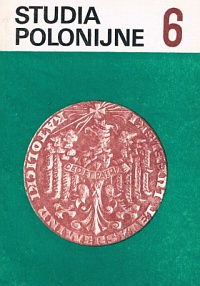Zagadnienie integracji grup etnicznych w świetle katolickiej nauki społecznej
Main Article Content
Abstrakt
In the discussion on the relation between one ethnic group to the cultural system of a new „homeland” the author of the present paper distinguishes between three tendencies: of assimilation, ghetto — isolation, and of cultural and social integration. Only the latter is claimed to be in accordance with the assumptions
of Catholic social science. The author defends his proposition on the basis of the Second Vatican Council’s and recent Popes’ enunciations.
The author’s argument is based on the personalistic concept of culture enclosed in „Goudium et spes” constitution and on the conception of cultural system which should be featured by integrity, coherence and openness. Attention is also paid to the specific dialectics of cultural development, outlined in „Gaudium et spes”, and expressed in such antinomies like unity of culture and multitude of cultures, dynamics of culture, its faithfulness to tradition and its coherence and openness. Additionally, a distinction between horizontal, vertical and organic openness is made.
The authors analyses the situation which occurs when one ethnic group enters a new and different cultural system. The unintelligibility of the new system brings about depreciation, escape or a feeling of alienation. It can, also cause moral breakdowns occurring when basic values’ estimation is unsettled. According to the author, integration gives a chance to avoid these problems.
Quoting Pope Paul VI, the author justifies man’s right to culture and, in consequence, the right to integration. Some conclusions referring to the principle of integration itself are formulated. Integration can take place only in a community of free people and it rejuires full freedom in cultural and social cooperation. It is also a necessity that all people should participate in the development of both the natives’ and immigrants’ cultural systems. The former system must, in accordance with Pope' Paul Vi’s statement, abandon its „narrow” nationalistic attitude and become open to new cultural values.

